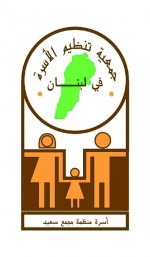In the midst of preparations for the World Population Conference in Bucharest in 1974, a symposium was being held simultaneously in Lebanon under the title, 'Maternity Awareness and Responsible Parenthood'. It included a group of specialists from different sectors: religious, medical, demographical and sociological. The deliberations came up with some recommendations including the importance of forming a special association to enforce parental guidance. That idea quickly developed to the establishment of Family Planning Association in Lebanon (LFPA) that was granted an official license from the Lebanese government on 19 August 1969. Although, a report prepared by an international expert at that time, claimed that it was unlikely for LFPA to survive under the sectarian regime practiced in Lebanon.
Shortly after, LFPA was granted a public utility status by presidential decree and soon after it started outlining its preliminary action plan to work and tackle the challenges inherent in the first stages of any practice.
LFPA vision of Family Planning
Our first objective was to challenge the misunderstanding that Family Planning concept was primarily to control child birth rate. There are many sectarian groups in Lebanon, each looking at increasing the population within its sector to ensure stability, prosperity and continuity. Each felt vulnerable and protective of own sector, especially in the absence of any official demographic census except for a sole report in 1932 which was perhaps done to serve the colonial regime of those days.
After a careful study taking into consideration the above factors it was agreed on the following vision:
Family Planning issue is a national obligation and requires huge efforts that cannot be achieved by a single organization regardless of the funds that were allocated to it.
Other factors should be considered when planning to start a family other than the woman's biological clock such as the parents' literacy level, social and economic standards, traditions, and many others and the current non-equilibrium was the result of a situation and not a reason by itself.
LEPA was to deal with the core of the problem and not with its consequences and try to deal with it.
LEPA is to work on serving the whole community and reach all areas regardless of sectarian group or background, in order not to create any sensitivity.
The first obstacle was the lack of any official statistics on the family unit which was crucial for our work. Thus was the need for a field study to determine knowledge, attitude and practices of family planning in the country.
KAP Study
A KAP study that was executed in 1972 sponsored by United Nations Population Fund (UNFPA) and included a sample of 3000 married women as per a national sample similarly used for a labor force study. It took two years to be completed and was published in two different volumes in 1974. The findings caused a great stir in Lebanon due to the important information published on child birth rate as per sectarian groups and regions. It is worthwhile mentioning that The Ministry of Public Health requested that certain findings not to be published such as the findings related to the religious groups, but we felt it would be misleading to the public and would decrease its scientific credibility.
One of the main findings that encouraged us to move forward with our work, was the attitude of husbands, 81% of husbands interviewed agreed to allow their wives to use contraceptive methods where as only 78% of the women agreed to that. In addition, other important factors were highlighted such as literacy level among women, early marriages and spacing of children within a family.
The study has also revealed the following facts:
The inverse correlation between education and no. of children: as literacy improved the no. of children in the family decreased and vice versa.
The inverse correlation between income and no. of children. The higher the income the less number of children.
The direct correlation between no. of children, social standards and population.
The direct correlation between careers and no. of children, professional groups had fewer children than people working in simple crafts and menial work.
These indicators defined the basic vision for approaching this issue and dealing with it, which included:
The importance of strengthening the skills and the educational and social level of women in the society and changing their perceptions of things.
Family Planning is a comprehensive issue and is not only related to promotion of contraceptives.
The need for a National approach towards Population issues that exceeds the number of population to all living conditions.
There are many factors that affect birth control issues such as age at marriage, awareness, knowledge and the importance of reaching young persons with education and awareness on this issue.
The need to conduct more studies to get a better picture of people's needs, views and concerns to help us serve them better.
This helped us to identify our framework as such:
To become affiliated to the International Planned Parenthood Federation (IPPF), this was achieved in 1971 and continued till 2005.
To establish a good relation with the Government departments and the Lebanese parliament.
To establish good networking with the civil society such as the labor trade unions, NGOS, and medical corp.
To establish a good relation with higher education institutes and attract as many students as possible to understand our role.
To establish close relations with donors especially with United Nations agencies active in Lebanon.
To abolish articles 537 and 538 of the Lebanese Penal Code that call for imprisonment and fine for individuals who promote the subject of family planning.
To work towards highlighting the issues related to population and sexual education.
The importance of supporting awareness campaigns with actual services to avoid conflict within the family such as the issue of un wanted pregnancies
Our efforts responded to the priorities identified above between 1974 (the publication of our first study) and 1994. They were complemented by other events such as:
The outcomes of the International Population Development Conference in 1974.
The outcomes of the International Population Development Conference in 1984.
The resolutions from the Women's Conference in Mexico in 1975 and Copenhagen in 1985.
The strategies and policies of the International Planning Parenthood Federation.
The National experiences with family planning issues especially in Egypt, Morocco and Tunisia.
In the light of the Programme of Action of the International Conference for Population Development in Cairo in 1994 and the various significant studies and activities performed by LFPA that served many, the association was able to move to the next level and define a strategic plan for action.
Achievements
LFPA has accomplished a lot in its forty-year journey and is still moving forward towards achieving more. To mention a few:
Providing RH services through its own centers, other centers set up by the government (The Ministry of Health & the Ministry of Social Affairs) and other NGOs. The Association was the sole provider of family planning services until 1996 when the Ministry of public health created a reproductive health program and introduced the service in its medical centers.
Succeeded in the abolition of articles 537 and 538 of the Lebanese Penal Code.
Building good relations with the Ministry of Education and the Educational Center for Research and Development where a special committee was formed to integrate subjects on population education in school curriculum. This was accomplished in 1997 when a full chapter consisting of four lessons on family planning was incorporated in the Civil Education school books.
The adoption of the Lebanese government of the RSH and family planning services in cooperation with the United Nations Population Fund as per a resolution issued at the Arab Population Conference- held in Amman in 1993. The fund was to resume its active role in Lebanon which was aborted due to war.
To draw the attention of the public and officials to matters related to population and family planning through:
National conferences on population issues that were carried out in 1977, 1982, 1987 and 2004 respectively. These conferences succeeded in creating the National Population Council in 1983 which was soon cancelled, then reinstated in 1993 under the supervision of the Ministry of Social Affairs and still operating today.
Parliamentary Conferences on population and development which were carried out with the cooperation of the parliament in 1987 and 1992. This led to the formation of the first parliamentary committee on population in 1987 and is still active today.
The National Population Committee that was established in 1993 as previously noted and later developed to a permanent committee where LFPA still plays an important role within its framework.
Members of the LFPA participated in the official conferences and international meetings on Population and Development that were held in New York, Egypt, the Hague, Istanbul, Amman and Lebanon, as the official representatives of the Lebanese Government
To conduct a wide range of studies on population and development.
To celebrate the World Population Day on July 11 of every year.
Building a strong and solid relationship with the Lebanese army which started in 1975 and is continuing until today. LFPA implements an annual program involving the Lebanese army on matters related to family planning. For the past three years, this program has been partially sponsored by the United Nations Population Fund (UNFPA).
The development of a special program to provide community based services related to family planning and is implemented by volunteer field workers. There are currently 110 female workers and volunteers in eight Lebanese areas providing awareness and contraceptives to rural women. They play an active and significant role to serve their community and villages.
Net Working: We strongly believe that in order for LFPA to succeed in its mission, it is important to work closely with other organizations especially within the civil society. For that purpose, LFPA has become a member of:
The Lebanese Council for Women
Several Coalitions that work on women's issues.
The National Federation of NGOs in contract with the Ministry of Social Affairs.
Collective of Civil organizations in Beirut and Saida.
LFPA has carried out a wide range of field studies, funded by the International Federation specifically for Family Planning. Such as:
Rural women in Bekaa
KAPB study to determine Youth awareness to topics such as AIDS, drug addiction and reproductive health.
University students and drug addiction.
Obstacles & Challenges
Our main challenge is to continuous need for our efforts to raise awareness on RSH especially sexual transmitted diseases and AIDS.
The discrepancies between the different regions in Lebanon as to their needs, and some have different priorities from those of the LFPA.
The Government departments have been paralyzed for a long period of time and the Ministry of Social Affairs is not able to commit to partnership with the civil society nor to utilize its capabilities
Some of the donors were reluctant to offer any financial assistance to projects that were not related directly to reproductive health issues, such as human rights, democracy and political affiliation.
The decrease of the international funding and non- compliance with the obligations of the donor countries pledged at Cairo Conference in 1994.
The increase in the cost of manpower, logistical and administrative requirements and to cope with it at the expense of other projects and priorities.
Studies
The LFPA in order to plan its activities implemented several needs assessment studies that provided qualitative and quantitative indicators that benefitted not only the LFPA but also academics and Government bodies. The most important are:
Knowledge, attitude and practices study on family planning methods, 1974. This study was published in two volumes and provided many indicators on the Family, women and children conditions in Lebanon.
Field Study on Families in Zahrani Casa (south Lebanon), 1975. Followed by house to house visits to collect demographic data. The data was used to build the Community Based Services Program.
Knowledge, attitude and practices study on family planning methods in three Lebanese Regions, 1984. Published.
Position and Attitude of Men from Family Planning, 198 9. Published
Needs Assessment of Youth at the end of the Civil war. 1989. Internal report.
Traditional Birth Attendants in Akkar, 1992. Internal Report
Operations Research Project in family Planning in Lebanon: A study of the Southern Suburb of Beirut, 1995. Published.
Knowledge, attitude and practices study on Drug Addiction, 1995. Published in a book , “Say No to Addiction”
The Impact and effectiveness Study of the “Community based Family Planning Services Program “in Zahrani Area (South Lebanon). 1995.
Knowledge, attitudes and practices of Youth on Reproductive / Sexual Health and Drug addiction, 199 7. Published.
Rural women in Bekaa: Reproductive Health and the unmet needs. 1998. Published.
Reproductive and Sexual Health in Lebanon: a Study of the Lebanese Women in Halba and Akkar Regions. 2002. Published in French.
The Impact of Family Planning and reproductive Health services on Women`s Lives, through the Experience of the Lebanon Family Planning Association in Bekaa region. 2003. Internal report, in English & Arabic.
Psychological Impact of the 2006 July War on women in South Lebanon. A rapid assessment of the needs of women in 20 villages in Tyr Region.2006. Internal report.
Soci- Economic Conditions of women in Bekaa Valley, After the War of July 2006. 2007. Published. English
Assessment of Women’s Satisfaction with Reproductive Health Services provided by the LFPA in the Health Facilities of the Lebanese Army. 2009. Not published yet, English & Arabic.
Knowledge, Attitude, Beliefs and Practice among Lebanese Soldiers Concerning HIV/AIDS and Reproductive Health Services: A Cross-Sectional Study.2009. Not published yet, English & Arabic.






